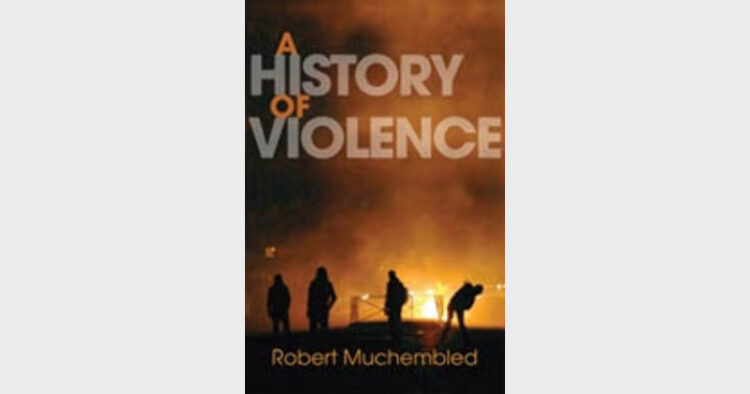BOOKMARK-7
By Dr R Balashankar
A History of Violence: From the end of the Middle Ages to the Present, Robert Muchembled, Polity Press, Pp 377(PB), £29.00.
Europe was a land of murder, physical violence and brutality till the early ‘factories’ 1650 onwards brought about a change in the general behaviour of men. Robert Muchembled in his book A History of Violence describes how in the name of honour and protecting territories and the kin, young men killed and got killed in an astonishingly large numbers. By those standards, today, the world seems much more civilised, largely seeking to settle quarrels in a more peaceful way.
“The principal change came around 1650, when, everywhere in Europe ravaged by interminable wars, a strong hostility developed to the sight of blood. From this time on, the Western ‘factory’ reshaped individual behaviour, which was habitually, especially among the young, by a system of norms and rules of politeness which devalued armed confrontations, codes of personal vengeance, excessively harsh hierarchical relationships and relations between sexes and age groups. This resulted, over the centuries, in a veritable transformation of the collective sensibility with regard to homicide, which culminated, during the industrial age, in its becoming a powerful taboo.”
Women remained very marginal contributors to the murder statistics. Less than ten per cent of the murderers were women. This figure has remained unchanged even today. From the thirteenth to the twentieth century, the number of cases of physical violence, brutality and murder had come down by fifty per cent, says Muchembled. Most murders are committed by young men, of between twenty and thirty years of age.
Muchembled discusses how violence and murder was part of the society in much of Europe. Boys beyond the age of seven were ‘segregated’ from the female members of the family and encouraged to take on other boys. The wounds on the body were counted with pride. Juvenile festivals of violence initiated kids into armed fights. Social quarrels were settled by weapons. Slowly, the situation changed, with the governments passing orders stopping citizens from settling disputes by the sword. There was much resistance. Especially, the higher gentry demanded the right to kill for honour.
Says Muchembled “The general characteristics of homicide pose a major puzzle. The profile of the typical offender has changed very little since the thirteenth century, in spite of the considerable decline in recorded numbers observed all over Europe… The majority of murderers are young men aged between twenty and twenty-nine. Under the ancient regime, their victims often resembled them in age and sex and the murderous confrontations usually revolved round issues of rights, precedence and honour. Members of the wealthiest and most privileged groups were no less involved than others.”
The ancient customs and traditions preceding Christianity were too powerful to be given up easily. Though the Church was preaching the ‘love thy neighbour’ philosophy, there were hardly takers, in the early periods.
One can’t help but mention that the India had in place several centuries before B.C codified crime and punishment systems, with the villages socially dealing with local crimes. Very few cases went to the ruler, where also, there was a proper mechanism for dispensation of justice. The scenario being discussed in the book, as prevailed in Europe is unthinkable in India. It is a sad fact that the Asian civilizations are never discussed in Western books, even in passing, merely for a cursory interest that a world so different and better from them existed.
Robert Muchembled in his thoroughly researched book discusses the social, ethnic, economic and political aspects of violence over the centuries, with his main focus on the decline in the number of murders from 1650 AD onwards. The account comes to the present age, referring to the “return of the gangs: contemporary adolescence and violence.” At the end is the moot question “Is the end of violence possible?” It is an exhaustive research on violence, in Europe.
The reading of the past may give a clue to the present trend of rising teenage violence there. The book was originally written in French and translated into English by Jean Birrell. Muchembled is Professor of Modern History at University of Paris of Paris XIII.
(Polity Press 65, Bridge Street, Cambridge CB2 1UR, UK)














Comments